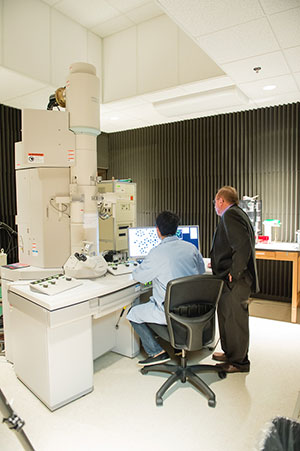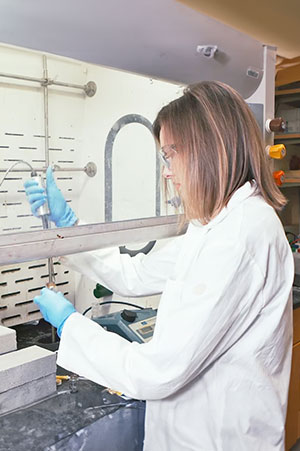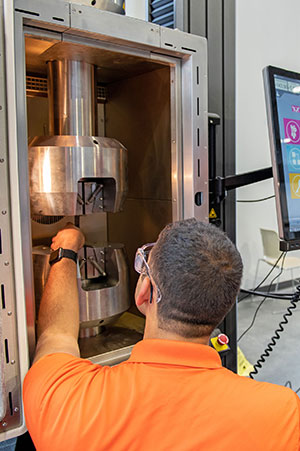Graduate Studies
Manufacturing New Materials
Advanced materials often have unique properties, making them useful in a wide range of applications. They help make lasers more powerful, cars and planes more fuel efficient, and sustainable energy more reliable and economically viable. The Department of Materials Science and Engineering builds upon our history of both textile development and ceramic processing to prepare our graduates for careers in government, academic, and industrial institutions.
Graduate students may specialize in research areas, including advanced manufacturing, biomaterials, energy materials, polymer design, and photonics.

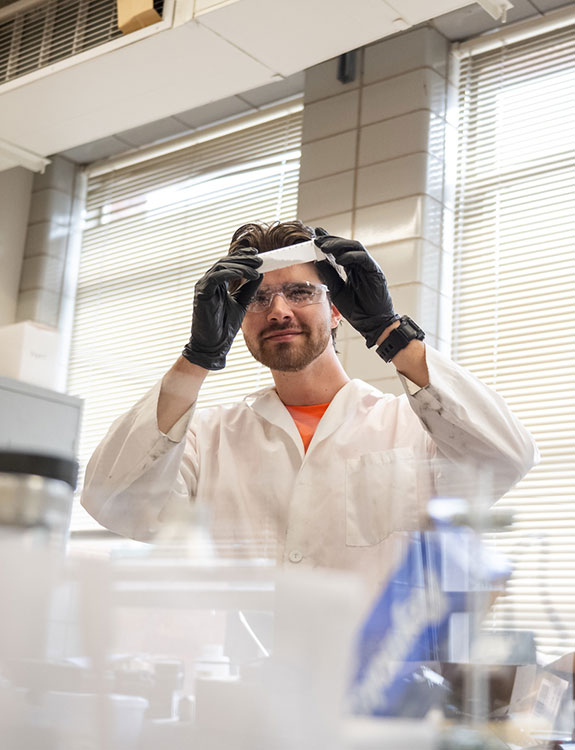
Aptitude for Investigation
Students who have already demonstrated an aptitude for investigation, intellectual accomplishments, and the power of independent thought in their undergraduate programs should consider further studies at the graduate level.
M.S. Program
The Master of Science in Materials Science and Engineering prepares graduates for entry into materials-related industrial institutions. Coursework produces engineers and scientists with specialization coupled with a broad foundation in all materials. Both a thesis and a non-thesis option are available, and the program is offered either in person or via hybrid delivery.
Students with a baccalaureate degree in any branch of engineering, as well as chemistry, physics and biology majors with strong mathematical backgrounds, may be admitted to the program.
Ph.D. Program
The materials science and engineering graduate program prepares students to apply science and engineering principles to solve problems related to the scientific understanding, characterization and development of new technology necessary for the processing and manufacturing of different materials and related products.
Students with a baccalaureate or master's degree in any branch of engineering, as well as chemistry, physics and biology majors with strong mathematical backgrounds, may be admitted to the program.

Combined B.S. and M.S.
The B.S./M.S. program in Materials Science and Engineering at Clemson University provides eligible undergraduate students (3.4 GPA or higher and 90 earned credit hours) with the opportunity to get a head-start on graduate studies by allowing them to use a limited number of graduate courses to satisfy requirements for both the B.S. and M.S. degrees.
Materials science and engineering undergraduates may begin a Master of Science (M.S.) degree program while completing their Bachelor of Science (B.S.). Students are encouraged to apply to the program either at the end of their sophomore year or during their junior year.
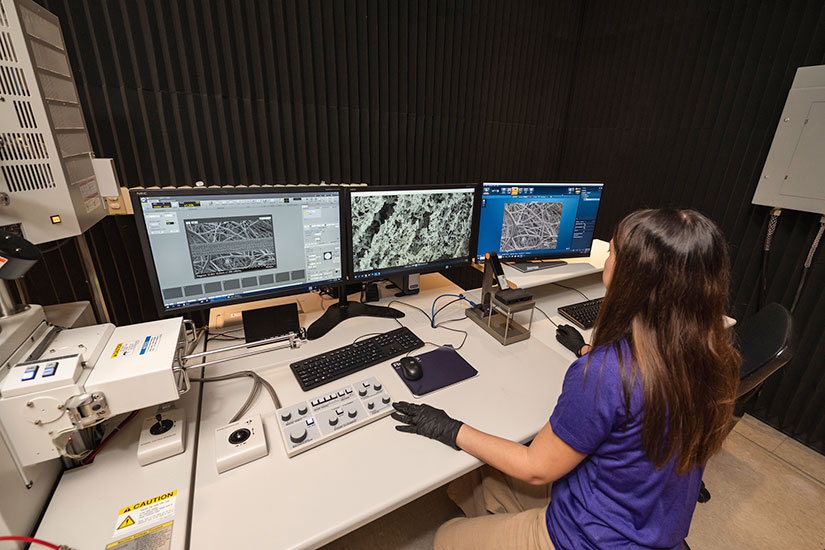
Expanded Research Capibilities
Clemson University has expanded its microscopy capabilities via state-of-the-art equipment at the Electron Microscopy Facility, allowing scientists to analyze very thin surface layers of materials not previously possible at Clemson. This coveted capability will directly contribute to research at educational institutions and private industry.
High-Powered MicroscopyShowcasing Talent
The Annual Materials and Optics Poster Competition is hosted at the Watt Family Innovation Center. This competition serves as the primary showcase of materials and optics research being performed at universities in the Southeast. In addition to presenting research, the night functions as a prime networking opportunity for students as members of industry and academic faculty members from surrounding universities gather at the competition.
Annual Southeastern Competition
